The Chinese control revolution: the Maoist echoes of Xi’s power play
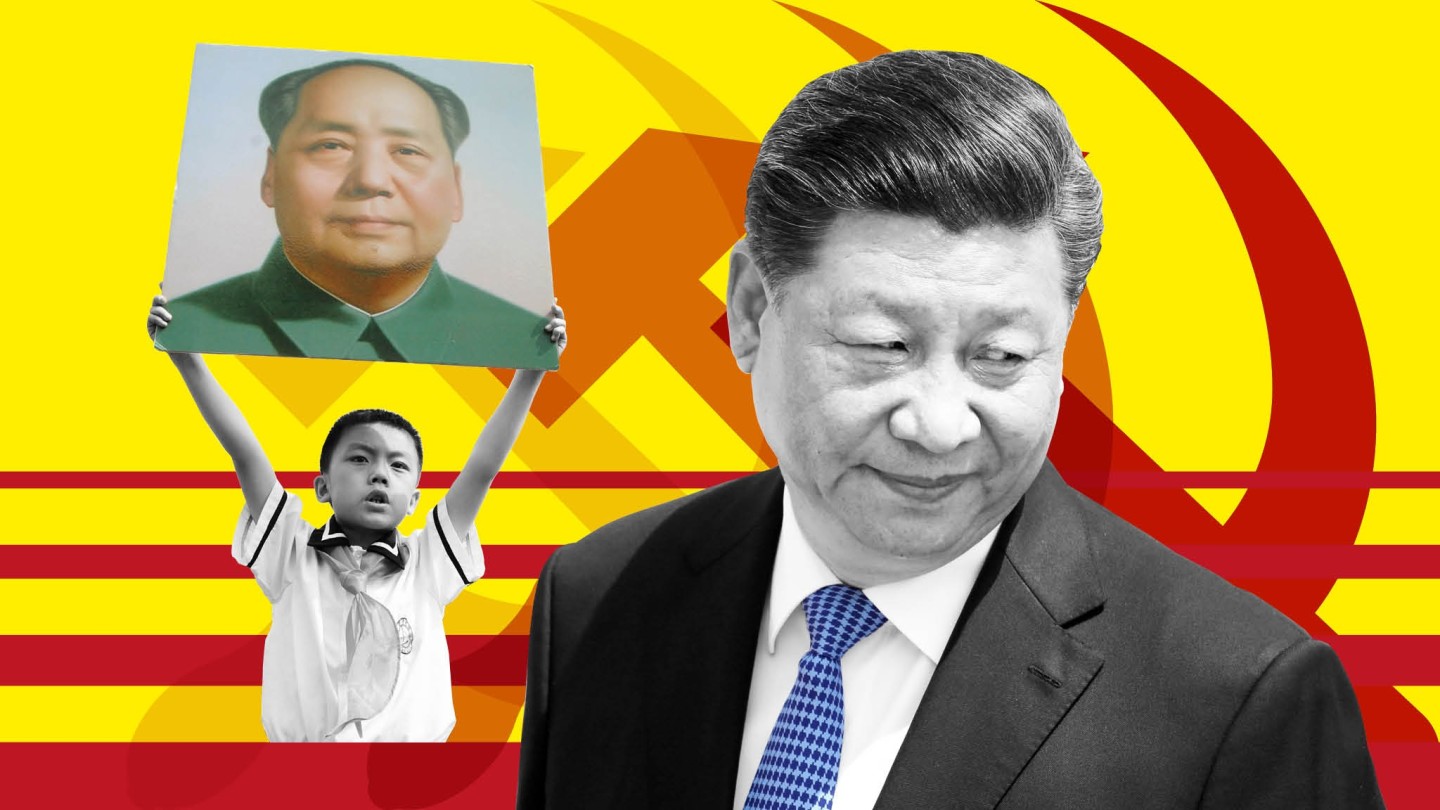
Simply sign up to the Chinese politics & policy myFT Digest -- delivered directly to your inbox.
This is the first in a two-part series about Xi Jinping’s assertion of greater control in China. Read the second article here
A prominent leftist commentator in China has denounced “big capitalists” and entertainment industry “sissy-boy stars”. Leading public figures are disappearing from view. Others are racing to declare their fealty — and pledge billions of dollars — to the policy priorities of an all-powerful supreme leader who has life-tenure.
A sudden frenzy of political activity over the past two weeks has many people wondering if China is entering a new political era, one that embraces elements of Maoist political campaigns as the Communist party continues to take a more domineering role under President Xi Jinping.
Some even suggest that this could be the early signs of a new social upheaval reminiscent of the Great Proletarian Cultural Revolution, a cataclysm precipitated by Mao Zedong in 1966 that resulted in the deaths of at least 1m people and stopped the country in its tracks for the better part of a decade.
“A monumental change is taking place in China. The economic, financial, cultural and political spheres are undergoing a profound revolution,” Li Guangman, the pen name of a prominent leftist commentator, wrote in a commentary that captured the zeitgeist. “It marks a return [of power] from Capitalist cliques to the people . . . It is a return to the revolutionary spirit, to heroism, to courage and righteousness.”
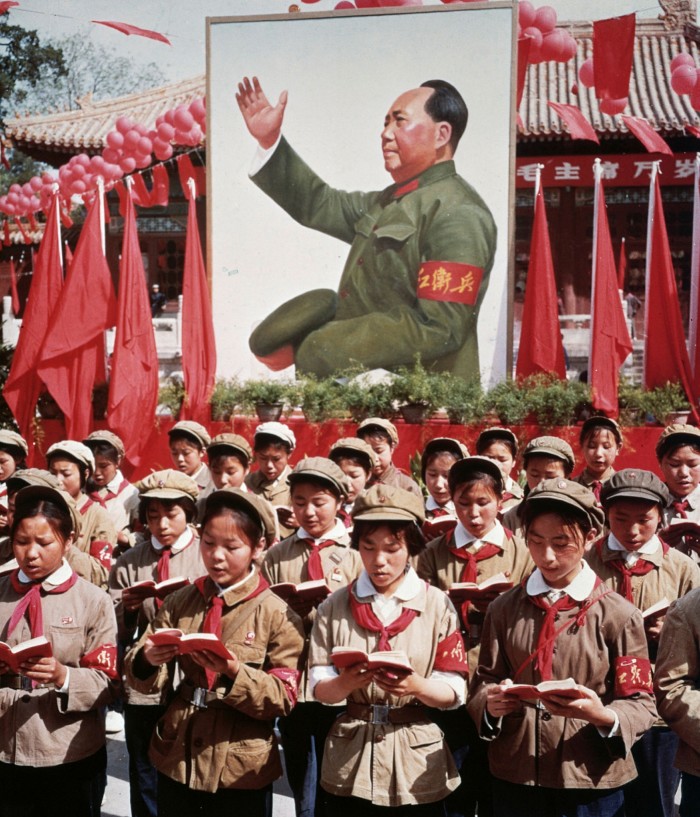
Much as “big-character posters” were sometimes reprinted by state media organs during the cultural revolution, so was Li’s diatribe amplified by Chinese Communist party-controlled media.
Xi, China’s most powerful ruler since Mao, has no illusions about the cultural revolution. During the tumult, his father, a veteran of the Communist revolution that triumphed in 1949, was persecuted and Xi himself was “sent down” to the countryside along with millions of other Chinese teenagers. In a December 2018 speech celebrating the 40th anniversary of Deng Xiaoping’s economic reforms, which propelled China out of Maoist poverty, Xi criticised the cultural revolution for bringing “China’s economy to the brink of collapse”.
But in a series of dramatic moves over the past year, ranging from a crackdown on China’s biggest technology companies to strict limits on the amount of time young people are allowed to play video games, Xi is reinserting the party into the private sector and into family lives in a way that has not been seen since Deng launched the “reform and opening” era in 1978.
Many of the announcements represent a form of economic populism in response to widespread anxiety about inequality — a social boil Xi wants to lance as he prepares for an unprecedented third term in power next year. But in his efforts to assert ever-greater personal control over both the party and civil society, he is flirting with propaganda tools and intimidation tactics that many observers see as a throwback to the Mao era.
“Xi has no appetite to release the genie of popular rebellion from the bottle. He has never been a revolutionary like Mao,” says Ming Xia, a political-science professor at City University of New York. “But it does not mean Xi would not manipulate and direct the anger among frustrated people at political targets he wants to destroy.
“With his confident control over the army, propaganda and bureaucracy, Xi has been applying Mao’s strategy at a smaller scale. He selectively targets some officials, businesspeople, opinion leaders, stars [and] skilfully manipulates the popular mood . . . to please the impulse of some Chinese who are less successful [and] harbour hatred toward the rich.”
Xi’s ‘profound revolution’
Xi has made it clear that the party must not abandon its revolutionary ideals — that it is duty-bound to deliver “common prosperity” and stand up to the west, especially the US. These convictions, as well as his tendency to view everything through a national security prism, have driven a 10-month campaign that started with last November’s cancellation of a $37bn initial public offering by Jack Ma’s online finance company, Ant Group. The drive has also ensnared Ma’s ecommerce platform, Alibaba, and Didi Chuxing, the country’s dominant ride-hailing operator now under investigation for its data security practices.
The most recent shot in Xi’s “profound revolution” came on August 17, when the party’s financial and economic affairs committee, which normally concerns itself with technocratic regulatory and policy matters, declared that it was necessary to “regulate excessively high incomes” in order to ensure “common prosperity for all”. Like almost all important party organs, the committee is chaired by Xi.
The declaration shattered the late-summer lull that descends on Beijing every August, when the party leadership typically decamps to the seaside resort town of Beidaihe. Many of China’s leading private sector entrepreneurs snapped to attention, pledging billions of dollars to charities and social welfare even as prominent officials rushed to assure them that Xi was not going to “kill the rich to help the poor”.
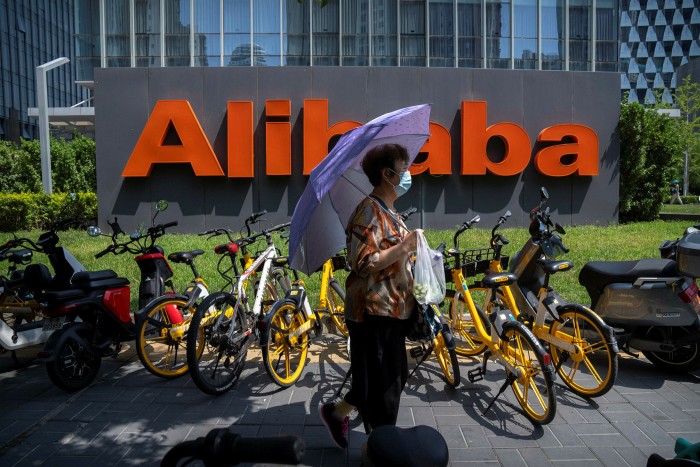
Alibaba and its biggest rival, Pony Ma’s Tencent group, have each pledged more than Rmb100bn ($15.5bn) to common prosperity-related causes.
“Common prosperity is not egalitarianism,” a commentary published by the official Xinhua news agency declared. “It is by no means robbing the rich to help the poor as misinterpreted by some western media.” On September 2 Hu Xijin, a state media editor and one of China’s most prominent nationalist voices, criticised Li’s commentary for “evoking certain historical memories and potentially triggering ideological confusion and panic”.
Such reassurances, however, have been easy to overlook as institutions including the state tax administration, the Supreme People’s Court and the housing ministry began rolling out a government-wide effort to enforce common prosperity.
Over the past fortnight the tax administration pledged to crack down on tax dodgers and fined Zheng Shuang, one of the country’s most popular actresses, $46m for tax evasion. The Supreme Court declared the 72-hour work weeks common at many technology companies to be illegal. And the housing ministry said on August 30 that it would cap annual residential rent increases at 5 per cent.
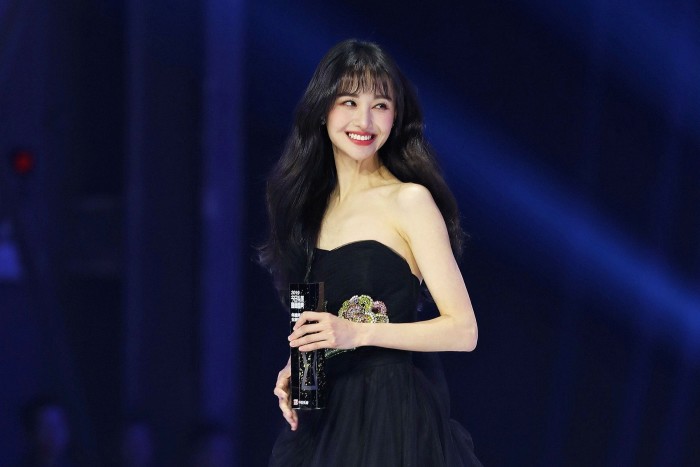
In his incendiary post, Li drew a clear connection between these recent “rectification drives” and the cancellation of Ant’s IPO, a $2.8bn fine imposed on Alibaba in April for monopoly abuses and Beijing’s ongoing investigation into Didi Chuxing, which angered officials by listing on the New York Stock Exchange in late June.
“This is a return to the party’s initial aspirations,” Li wrote. “The capital market will no longer be a paradise for capitalists to get rich overnight, the cultural market will no longer be a paradise for sissy-boy stars and [people] will no longer worship western culture.”
TV shows and movies featuring Zheng, who did not challenge the tax administration’s penalty and apologised, were quickly wiped off the Chinese internet. So were those of another popular actress, Zhao Wei, and Gao Xiaosong, a popular talk show host and former head of Ma’s film studio, Alibaba Entertainment.
Zhao’s offence was less clear than Zheng’s, although Chinese nationalists were recently offended when pictures surfaced of an actor represented by an agency she established visiting Tokyo’s Yasukuni shrine, where Japan’s war dead, including some who were convicted of war crimes, are interred. As rumours swirled that Zhao had fled the country, a post on her Instagram account reportedly said she was in Beijing with her parents. But that too disappeared.
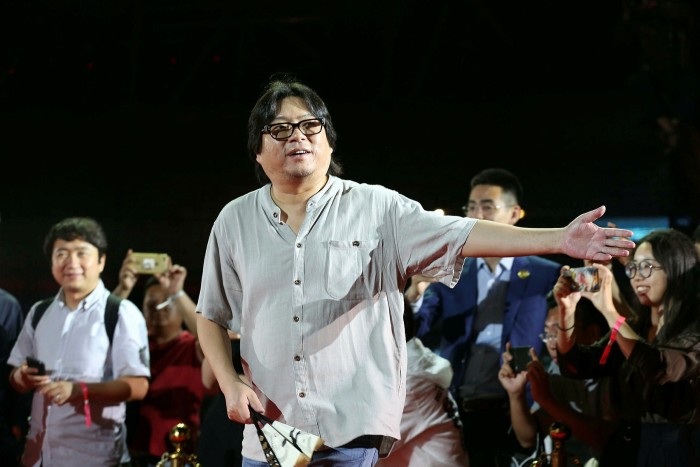
Gao was pilloried for observing on a talk show that many Japanese people had a different view of Yasukuni, triggering a cascade of criticism. The Chinese Academy of Social Sciences’ history unit put out a statement declaring him guilty of “historical nihilism” — code for narratives that do not accord with the party’s — and saying he should be “buried in history”.
The new emperor
While such denunciations are reminiscent of the cultural revolution, there are no signs of the anarchy associated with that era in Xi’s China. Though Mao basked in a cult of personality that far exceeds what Xi currently enjoys, China’s revolutionary founder felt that real executive power had been appropriated from him by party apparatchiks. He responded by launching a mass movement, with youthful red guards at the vanguard, that attacked the party until he felt his grip on absolute power had been restored. Only after extrajudicial vigilante violence veered out of control did Mao call in the army to restore a semblance of order.
By contrast, Xi’s hold on executive power is far stronger than Mao’s was in the years preceding the cultural revolution. And this time it is the party that is on the offensive, attacking Ma and other prominent technology entrepreneurs, entire sectors ranging from the tutoring industry to video gaming, and public figures such as Zheng and Gao. The party-state’s monopoly on violence has never been stronger.
Ren Yi, a popular patriotic commentator, says comparisons with the cultural revolution are “total nonsense”. “The cultural revolution was a mass movement launched by [Mao] to overthrow the government,” Ren says. “It targeted the entire bureaucratic system . . . Do you see Xi going to Peking University to call on students to attack the government?”
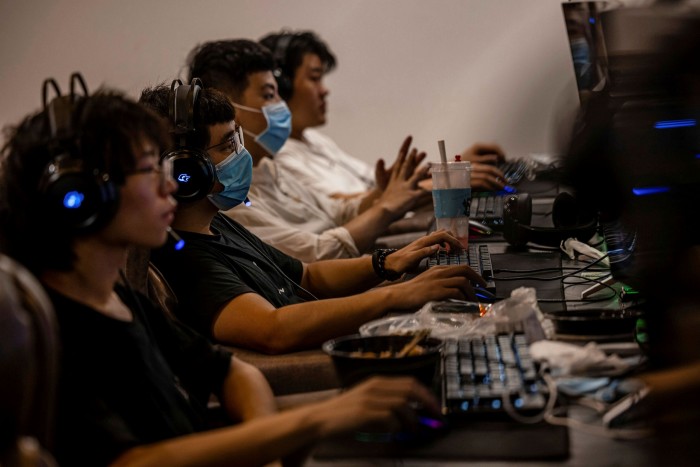
Ren adds that Donald Trump calling on his supporters to deny the results of last year’s US presidential election — and the subsequent attack on Congress — was closer in spirit to the cultural revolution than anything Xi is doing. He and other Xi supporters argue that the recent policy onslaught is essentially benign and long overdue — and shares much with the economic populism in the US of Democratic lawmakers Bernie Sanders or Alexandria Ocasio-Cortez. Xi, they say, is determined to rein in special interest groups whose privileges he believes undermine the common good.
According to this argument, people should judge Xi’s administration not by its often draconian means but by its ends — from lower living costs for China’s squeezed middle class to more checks on the monopoly powers of the country’s tech giants.
“Expanding equality of opportunity is important to prevent class entrenchment, enhance social mobility and maintain the vitality of society,” Ren wrote in a recent essay. “If western politics is more about the conflict between individuals and government, our politics is about the conflict between interest groups and the public interest. China’s goal [is to] maximise the wellbeing of the majority of the population and achieve greater equality of opportunity and common prosperity.”
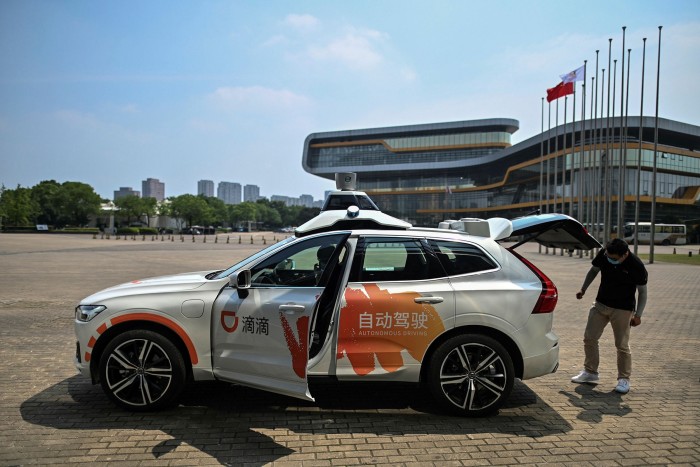
A Chinese venture capitalist, who asked not to be identified, agrees with Ren that many of Xi’s policy objectives are admirable. “The way they’re doing it is very abrupt and abrasive — the optics aren’t great,” he says. “But these initiatives are not fundamentally wrong as long as they continue to protect private property and the market economy.”
His main concern, he adds, is the sense of unpredictability arising from Xi’s sudden offensives in the business and economic sphere over the past year. “These are the facts — at least as of today. Tomorrow we have no idea what’s going to happen.”
While fears of a second cultural revolution in China may be overblown, Xi’s late summer policy offensive has only reinforced the almost universal expectation in China that he is gearing up to take a historic third five-year term in late 2022, when the party will hold its 20th congress.
Xi’s admirers see him as a “transformational” leader in the mould of Mao and Deng — a “good emperor” who needs more time to lead the country into a new era in which it will finally match the wealth and power of the US. Yet in doing so, he will jettison what many people view as a major accomplishment of the reform era: a predictable transfer of power every 10 years to a new president and party head.
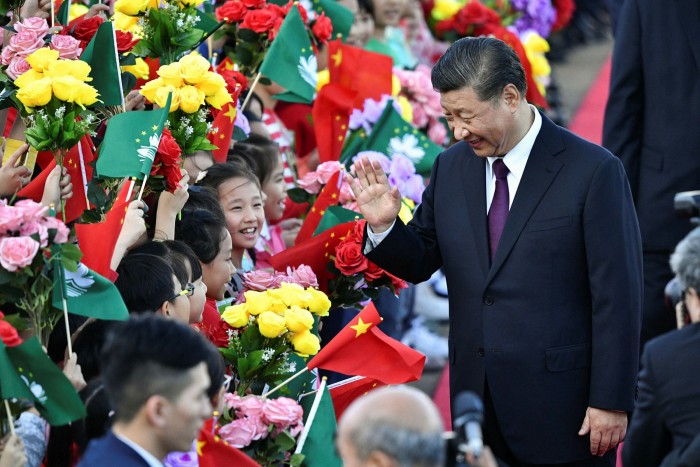
Since the Qing dynasty collapsed in 1911, there have been only two peaceful transitions of power, both under Communist rule. The first was that from Jiang Zemin to Hu Jintao in 2002, and from Hu to Xi in 2012.
But in 2017, shortly before the start of his second term, Xi purged or sidelined the two youngest members of the party’s politburo, leaving no clear successor. The following year he abolished the two-term limit on the presidency, in a clear signal he had no intention of retiring in 2022. Seen from this perspective, Xi’s “common prosperity” campaign is a signalling device for his policy priorities through 2027, when he will turn 74 and perhaps seek a fourth term in power.
“China is a leaking boat,” says Desmond Shum, a Shanghai native now living in the UK who invested in projects with some of the party’s most powerful families and has just published a book about his experiences. “There are so many humongous problems, whether it’s the ageing population or the economic structure, that every leadership [team] says they’re unable to tackle all of them. They will handle it the best they can during their administration and then pass it on to the next guys. At some stage everybody believes it is going to explode in their face.
“But Xi,” Shum adds, “sees himself as the emperor who revives the dynasty. He’s going to tackle these problems himself.”
Additional reporting by Xinning Liu and Emma Zhou
Comments